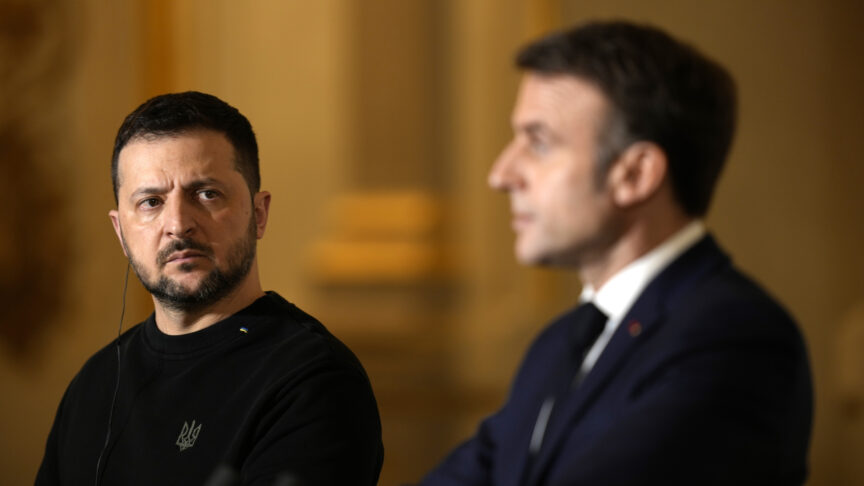The end of ?de facto states?
Nicu Popescu comments on developments in Abkhazia and South Ossetia after their recognition by Russia
This piece was first published as part of the author’s EUObserver blog on 13 July 2009.
For years the secessionist entities of Abkhazia, South
Ossetia, Nagorno-Karabakh and Transnistria have been referred to
as “de facto states” and the conflicts around them – “frozen conflicts” (see
previous posts on South
Ossetia and Abkhazia).
There has been a wide consensus that the term “frozen conflicts” is a misnomer.
The conflicts have never been frozen, their settlement was. But the evolving
realities of Abkhazia and South Ossetia are
making the term “de facto states” also increasingly obsolete.
Scott
Pegg launched the debate on de facto states with a book published over a
decade ago. He referred mainly to North Cyprus, Taiwan,
Somaliland, and Tamil Eelam. Dov Lynch took
the debate into the post-Soviet space with his book
on the “Engaging Eurasia’s Separatist States: Unresolved Conflicts and De Facto
States”. The argument in both books is that secessionist regions which control
a more or less well-defined territory, population and have a set of state-like
institutions can be termed as “de facto states”. They are unrecognised, but de
facto independent.
The truth is of course more complicated because most “de facto” states have
always relied on various levels of external support to ensure their security
and/or economic development (think of Taiwan,
North Cyprus or Abkhazia). So the term has
always been relative. Abkhazia, South Ossetia and Transnistria have outsourced a large
chunk of their de facto independence to Russia: their
borders have been de facto guarded by Russian peacekeepers, the Russian rouble
was the official currency of Abkhazia and South Ossetia (Transnistria has its
own currency), some functions in the de facto governments (especially in South
Ossetia) have been outsourced to Russia etc. There has always a large degree of
“de facto integration” of Abkhazia and South Ossetia into Russia which
was limiting their claims of being “de facto independent”. And still they were
accepted by most analysts as “de facto states”. But the Russian recognition of
Abkhazia and South Ossetia’s independence is
accelerating the loss of their “de facto independence” if not by will, then by
default.
The paradox is that until August 2008 Abkhazia and South
Ossetia were unrecognised, but de facto independent; after August
2008 they became partly recognised, but not de facto independent anymore. If
the secessionist wars of 1992-1993 were their “wars for independence”, the
August 2008 war is becoming the war that marked the loss of (their however
limited) “de facto independence”. The 2008 was won by Russia, not the
secessionist entities. Both Abkhazia and South Ossetia
are quickly evolving from being “de facto states” to becoming “de facto Russian
regions”. Most South Ossetians welcome that,
but the Abkhaz are more ambivalent. For example a recent statement by Abkhaz
opposition activists argues that “all the functions that ensure the sovereignty
and independence of our state are ceded to an external party.” One can agree or
nor with such a statement, but such a debate in Abkhazia is taking place.
Either way, the trend towards de facto integration into Russia is near
inevitable and near irreversible, for at least a couple of decades.
All the regional actors willingly or unwillingly contribute to this. Russia feels comfortable
being the only gate to the world for the secessionist entities. It vetoed and
expelled the OSCE mission from South Ossetia
and the UN mission from Abkhazia, which will certainly contribute to their
greater isolation. Georgia,
at its turn, is also contributing to the greater isolation of the secessionist
entities through its “law on
occupied territories“. Georgian policies only increase the reliance of the
secessionist entities on Russia.
As for the EU, there are more and more cases of EU
member states refusing visas to residents of Abkhazia. But Abkhazia and South
Ossetia also contribute to their own self-isolation by refusing many
international contacts for symbolic reasons (such as refusing to let the EU
Monitoring Mission on their territories, or refusing to meet EU ambassadors to Georgia because they are ambassadors “to Georgia”). Such
trends are hardly in the long-term interest of any of the actors in the
conflict, but they are the result of previous policy choices made by all
these actors themselves.
The European Council on Foreign Relations does not take collective positions. ECFR publications only represent the views of their individual authors.


